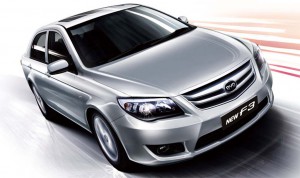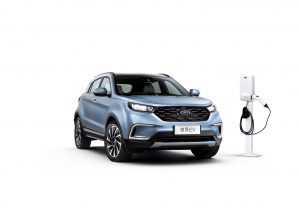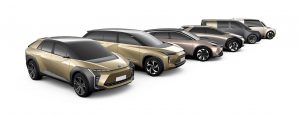It’s been a busy week for automotive dealmakers in China. Both Renault and Toyota have lined up new joint ventures that will allow them to significantly expand their production in battery-electric vehicles in what is now the world’s largest market for BEVs.
And there’s good reason why plenty of other manufacturers are expected to follow in the coming months. According to data from the China Association of Automobile Manufacturers, or CAAM, demand for all-electric and plug-in hybrid models is on track to finish 2019 at a record 1.6 million vehicles, a 27% jump from the previous record set just last year. That’s all the more significant considering that, for the first time in two decades, overall Chinese motor vehicle sales are expected to dip this year.
The $145 million investment Renault has made in a new battery-car joint venture with Renault “will support our growth plan in China and our EV capabilities,” said Francois Provost, the chairman of the French automaker’s Chinese operations.
The 50/50 deal was announced on the same day that Toyota said it would turn to Contemporary Amperex Technology for what it described in a statement as a “stable supply and further development” of battery technology for use in the Chinese market.
“A stable supply of batteries is critical and that battery technology must be further developed and advanced,” it added. “To this end, the two companies intend to establish joint systems and engage in specific initiatives together.”
(Toyota moves to expand its EV program. Click Here for more on that story.)
Just a month earlier, Toyota officials announced a significant expansion in their electrification program. That will cover a range of battery-based vehicles, including hybrids, plug-ins and BEVs. All-electric models are particularly important for China as a result of the New Energy Vehicle, or NEV, program that was put in place at the end of 2017. It puts heavy pressure on carmakers and car buyers alike to shift to plug-based vehicles, BEVs, in particular. Among other things, buyers of qualified vehicles can sidestep the monthly limits on new vehicle registrations in cities like Beijing.
That led to an explosive burst of demand in 2017, with the pace continuing this year, even as overall Chinese sales have tumbled so far this year. While CAAM is still predicting a modest, single-digit increase for all of 2019, other experts are far less upbeat, many anticipating this year will mark the first annual downturn since the market began to expand at the beginning of the new millennium. All told, sales of EVs are up by nearly 62% since the beginning of 2017, according to Chinese industry figures.
(Ford, GM hit hard as Chinese car market slows. Click Here for the latest on the slowdown.)
Major global manufacturers are struggling to keep on top of the trend. Ford in June introduced its first all-electric SUV in China, the Territory EV, which is produced by its alliance partner Jiangling.

China’s domestic brands, like BYD, could come to dominate the market, backed by the Chinese government.
“We will combine Ford’s global new energy strategy, inject Chinese genes and Chinese wisdom, and fulfill the promise of ‘more Ford, more China,'” Chen Anning, president and CEO of Ford Motor Company China, said in a statement.
One of the problems for foreign-owned companies like Ford, Toyota and Renault is that the Chinese government is openly pushing for domestic manufacturers to take the lead in the EV segment.
“By 2025, China’s government wants home-grown carmakers to have an 80 per cent market share of EVs sold in China, out of 3 million units to be sold by then,” reported the South China Morning Post. That is part of the “Made in China 2025” industrial master plan, the paper noted.
The government has taken a number of steps to encourage consumers to make the switch to battery-cars, among other things offering sizable cash incentives. But regulators have moved to trim back that support, betting that the industry now has enough of its own momentum to keep demand building. The latest sales numbers appear to support that but it could take some more time to see if the growth pace continues.


